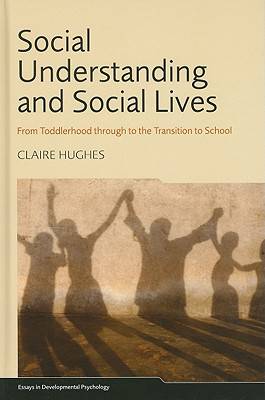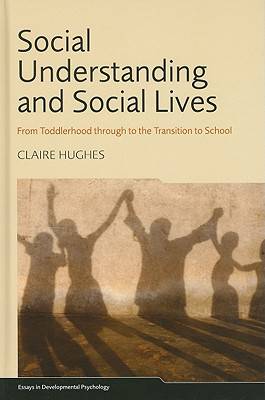
- Retrait gratuit dans votre magasin Club
- 7.000.000 titres dans notre catalogue
- Payer en toute sécurité
- Toujours un magasin près de chez vous
- Retrait gratuit dans votre magasin Club
- 7.000.0000 titres dans notre catalogue
- Payer en toute sécurité
- Toujours un magasin près de chez vous
Social Understanding and Social Lives
From Toddlerhood through to the Transition to School
Claire HughesDescription
Winner of the British Psychological Society Book Award (Academic Monograph category) 2013!
Over the past thirty years, researchers have documented a remarkable growth in children's social understanding between toddlerhood and the early school years. However, it is still unclear why some children's awareness of others' thoughts and feelings lags so far behind that of their peers. Based on research that spans an extended developmental period, this book examines this question from both social and cognitive perspectives, and investigates the real-life significance of individual differences in theory of mind.
After tracing the key age-related changes in the development of theory of mind, this book examines individual differences in relation to children's cognitive abilities and their social experiences. Why might language or executive function matter for children's social understanding? And how do children's linguistic environments and relationships with parents and siblings contribute to their ability to reflect on people's thoughts and feelings?
The book also reviews the evidence for predictive links between early social understanding and later social behaviour. Using information gathered from classmates, teachers and the children themselves, the author investigates links between individual differences in early social understanding and in the quality of children's interactions with friends, in their ability to resolve conflict, and in diverse aspects of school adjustment.
Drawing on rich observational data gathered in this extended longitudinal study, as well as skills acquired during her early experimental studies of children with autism and a six year collaboration with Professor Judy Dunn, the author integrates both cognitive and social accounts of theory of mind. The book is ideal reading for researchers actively working in the field, graduate and undergraduate students specializing in developmental psychology, educational and health professionals, and parents interested in learning about children's early social development.
Spécifications
Parties prenantes
- Auteur(s) :
- Editeur:
Contenu
- Nombre de pages :
- 252
- Langue:
- Anglais
- Collection :
Caractéristiques
- EAN:
- 9781841697352
- Date de parution :
- 23-03-11
- Format:
- Livre relié
- Format numérique:
- Genaaid
- Dimensions :
- 163 mm x 236 mm
- Poids :
- 544 g

Les avis
Nous publions uniquement les avis qui respectent les conditions requises. Consultez nos conditions pour les avis.






